History
Curriculum - History
History at Ashfield offers pupils knowledge and understanding of how people have been motivated and influenced in the past in a coherent chronological learning sequence. This is reinforced by reference back to prior learning, which will build an overview of Otley’s past, Britain’s past as well as that of the wider world. Learning about history takes place through enquiry and analysis of a variety of artefacts and sources. Children learn that history is always an interpretation of the facts and that historians have different views about the past. They should, after reflection, be able to debate their point of view using evidence.
Knowledge / Analysis / Debate
History Policy
In Early Years, children begin to understand the concept of ‘the past’. They talk about events and activities that they remember in the recent past. They are supported to think about and talk about celebrations. Children become aware of the changes in routine during different times of the day and different seasons of the year.
They learn history through topics which may have links to other subject areas.
In KS1 and KS2, topics on the long term plan are taught so that the pupils have a diet of local, national and world history over the primary school years. Each topic gives children opportunities to:
- refer to a whole school timeline to develop chronology
- refer to a topic timeline for the period they are learning about
- identify similarities and differences in KS1 and connections and contrasts in KS2
- ask as well as answer questions
- organise and use a range of historical sources to interpret the past
- learn and use a bank of words and phrases of historical terms some of which are related to the passing of time in history lessons
In KS1, children learn about specific events and people including: the moon landing and Neil Armstrong with links to Tim Peake (as Ashfield hosted a live link up to speak to him on the space station in 2016) and the Great Fire of London. Children also explore toys and seaside holidays as a gateway to discovering customs from the past and comparing them with today.
In KS2, children learn about the history of Britain in chronological order, wherever possible. Chronology will be emphasised through the use of a whole school history timeline from the Stone Age through to the Blitz in WW2. They will make comparisons between life during each period studied, noting similarities and differences between the present and the past.
Children in Years 3 and 4 learn about the following: Britain in the Stone Age; Ancient Egyptian culture; Ancient Greece; Bronze and Iron Age Britain; the Roman Empire; and the settlement of Britain by Anglo Saxons and Vikings. In Years 5 and 6, children study: Benin; The Civil War; Captain Oates’ Antarctic expedition; Industry in Otley; WWll and Crime and Punishment.
Children examine and discuss a wide range of evidence from historical sources including artefacts, written documents, recordings and testimony from living witnesses. They find out about significant people and the work of famous historians. They will visit places of historical interest and take part in hands-on workshops. They investigate local links to the periods studied. For more detail see the whole school long term plan.
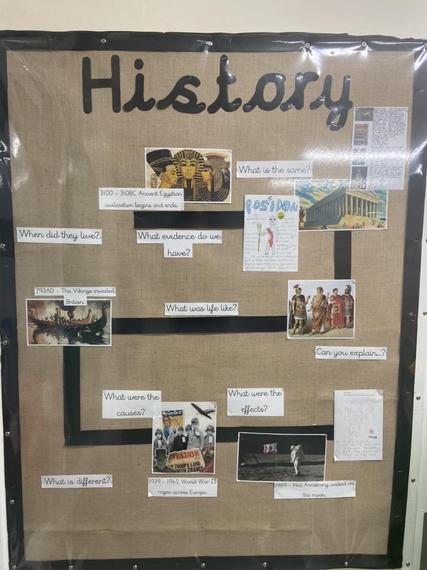
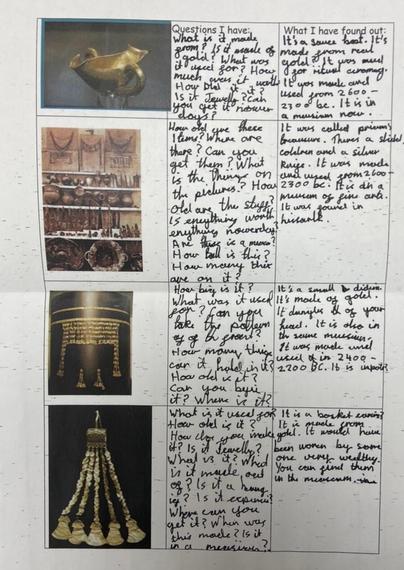
Investigating artefacts
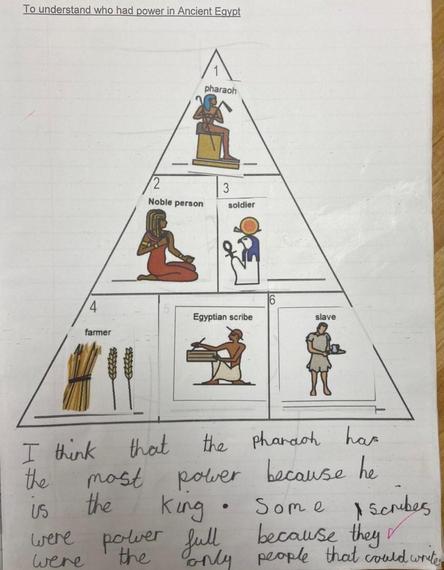
Ancient Egyptians
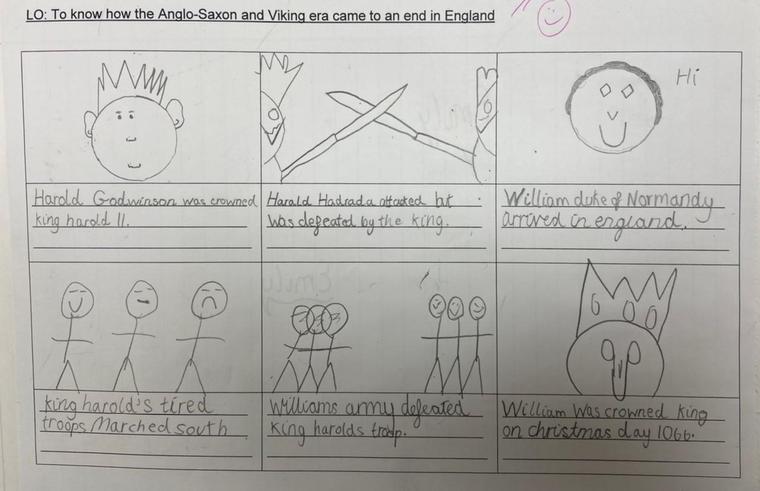
Anglo-Saxons
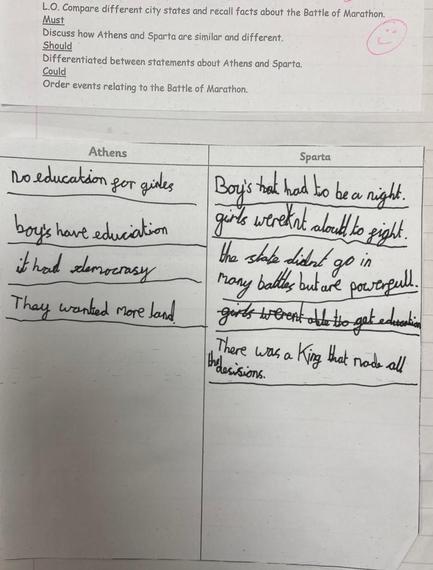
Ancient Greece
